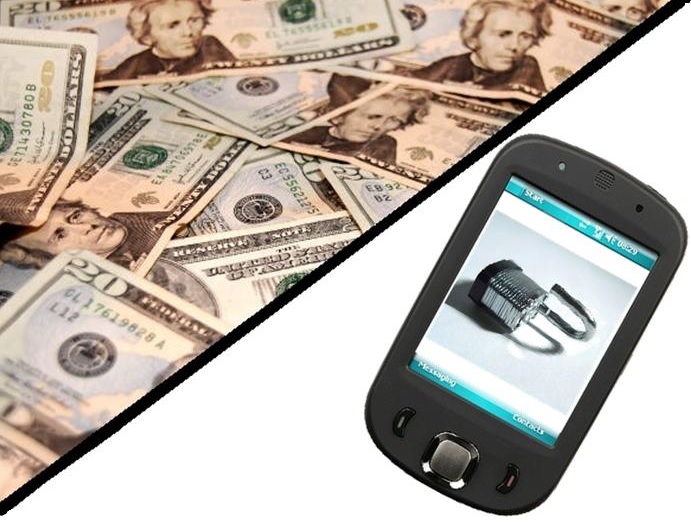Fraud is already rapidly on the rise in this sector which remains relatively limited, and it is only expected to grow.
When it comes to the adoption of smartphone based payments, one of the biggest concerns of consumers is mobile security, and for good reason, according to the latest data that has revealed that fraud in this area is a growing trend and it is coming at a considerable price.
The m-payments market was slow to get started, but it is experiencing some growth.
However, at the same time that m-payments are slowly growing, mobile security risks are increasing rapidly and are expected by experts to increase at a more rapid pace in coming years. This problem is expanded when m-commerce is taken into account, as shopping over smartphones has been taking off at a very rapid rate and is expected to become quite explosive over the upcoming holiday buying season.
A recent report has shown that the cost that mobile security issues is going to be a pricy one.
 According to the Gartner technology research group’s projections, over the next four years, m-payments will experience a 35 percent average annual growth rate, which will send the number of users to around 450 million, and the amount of spending over this method up to $721 billion by 2017. In North America, alone, there is expected to be a growth rate of 53 percent, this year, so that by the end of 2013, it will have reached $37 billion, when compared to last year’s $24 billion. This is positive news for that industry, but also represents a growing mobile security risk as it becomes a more lucrative target to potential scammers and thieves.
According to the Gartner technology research group’s projections, over the next four years, m-payments will experience a 35 percent average annual growth rate, which will send the number of users to around 450 million, and the amount of spending over this method up to $721 billion by 2017. In North America, alone, there is expected to be a growth rate of 53 percent, this year, so that by the end of 2013, it will have reached $37 billion, when compared to last year’s $24 billion. This is positive news for that industry, but also represents a growing mobile security risk as it becomes a more lucrative target to potential scammers and thieves.
All of the major players in smartphones and technology seem to have made their way into m-payments in one way or another, each with their own efforts to enhance mobile security to the point that they can make consumers comfortable with the tech and keep out fraud at the same time. This includes the acquisition of Braintree by PayPal, the new and improved mobile wallet launch by Google, and the addition of fingerprint scanning and biometrics by Apple.
Still, the primary barrier that all of those companies face is in mobile security, as consumers are still not convinced of the safety of their sensitive data. As many consumers are already quite comfortable with the payments methods that they already use, they are not ready to take a risk on a new and little known technology, when they don’t feel that their credit and debit cards are causing them an inconvenience.

 Nearly all of the companies that permitted the use of personal smartphones said that there is a growth in the number of these devices connecting to their corporate networks. Moreover, 45 percent of them said that there are five times more personal smartphones connecting to those networks than there had been in 2011.
Nearly all of the companies that permitted the use of personal smartphones said that there is a growth in the number of these devices connecting to their corporate networks. Moreover, 45 percent of them said that there are five times more personal smartphones connecting to those networks than there had been in 2011.